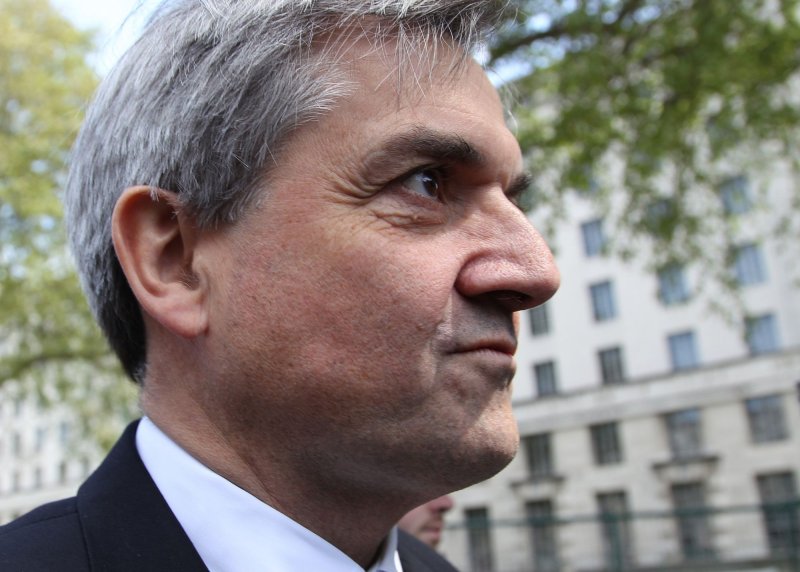Liberal Democrat home secretary Chris Huhne leaves the Cabinet offices after trying to strike a deal with the Conservative party and form a coalition government in London on May 10 2010 London,England. Conservative leader David Cameron is meeting his party members tonight for a showdown. UPI/Hugo Philpott |
License Photo
LONDON, Dec. 21 (UPI) -- Britain has tabled a set of policies to change to support low-carbon energy sources.
They include long-term, feed-in-tariffs, minimum price levels for large low-carbon generation projects, funds for "reserve plants" to ensure a reliable power generation, incentives for energy efficiency, and greater support to price carbon.
They would replace the current certificate-based "renewables obligation" system, which has helped Britain to the world's largest offshore wind portfolio.
British Energy and Climate Secretary Chris Huhne called the measures, tabled last week, a "once-in-a-generation chance to lay the foundations for the sustainable economy of the future," the BBC reports.
The policies are aimed at supporting low-carbon investments of at least $300 billion over the next decade to meet Britain's climate protection and clean energy targets.
London aims to reduce Britain's carbon dioxide emissions by 32 percent until 2020 and to boost the share of renewables in the energy mix to 15 percent, also by 2020.
Britain Wednesday committed $3.5 billion for clean energy projects to spur economic growth, while cutting budgets across other departments.
In a sign that it's committed to blaze a trail into a new energy age, the British government in October raised spending of the Energy and Climate Department by 15 percent to $5 billion, while most budgets were slashed 10-30 percent.
That means the green energy sector emerged largely untarnished from the massive $130 billion public spending cuts that will hit other departments hard and result in the loss of around 490,000 public sector jobs.
Yet Renewable UK, a wind industry lobbying group, has warned that the new policy proposals, which would constitute a radical overhaul of Britain's green energy support system, could damage investor confidence.
Consumer groups are worried that electricity bills could rise too much, as most of the incentives might be financed either by price hikes on the part of the utilities or via taxes.
Price comparison Web site uSwitch has estimated that bills will rise by $770 a year if the measures are introduced, a forecast that Huhne has called "bonkers." He told the BBC that an average electricity bill would rise by $250 until 2030 and by $300 without the new policies.
"We've got to replace about a quarter of our aging coal and nuclear power stations anyway and, since energy companies are not the Salvation Army and are going to have to make a return if they are going to make this investment, there is going to be a rise in energy bills," Huhne said.
He added the new policies would defend customers against oil and natural gas price volatility. That will "ensure consumers get the best possible deal by encouraging more competition into the marketplace," Huhne said.
The proposals will be discussed and possibly put into a White Paper by spring 2011.















